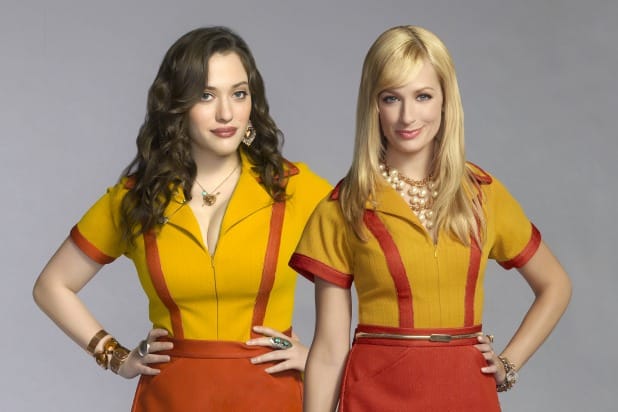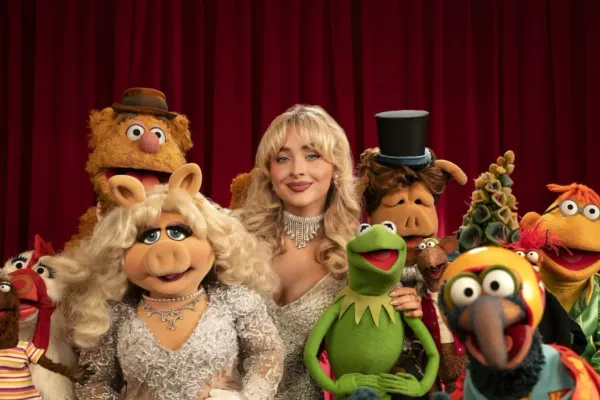Episodes: Cock-eyed optimists and many, many broke girls

Every TV critic has one or two shows they backed from the pilot stage, only to have them blow up in their face. It's why we all tend to hedge our bets as much as possible if we only have one or two episodes to go off of. "Well, I've only seen the pilot, but..." or "This is a solid pilot, but it's hard to know what episode two will look like." That sort of thing.
This is, of course, almost completely useless to a reader. People don't watch TV pilots. They watch shows, and it's hard to say if a pilot will hook someone, unless it's, like, the pilot for Lost or Modern Family (which is a really stunning pilot — that was also almost completely impossible to replicate). The number of genuinely great TV pilots in history is very, very low. You can count the comedy pilots on two hands, and maybe add in your feet for dramas (which are easier to do, since there's more time to work with).
For the most part, pilots are prologues awkwardly stitched to the stuff on the back cover, and God help you if you've wandered into a premise pilot, where everybody explains everything that's happening all of the time. (One of the reasons Lost had such a good pilot was because stuff just happened. There was no exposition, really.)
Anyway, as you've guessed from the image above, it's time to talk about 2 Broke Girls, and why I liked it so much. I've rewatched the pilot a few times over the years, trying to see if my relative optimism about it was misplaced, and I continue to think it's a pretty solid pilot, with an equal number of promising moments and giant red flags. My enthusiasm stemmed from my belief that all involved would run toward the promising moments and away from the red flags, when the exact opposite happened.
But there are good moments in there! Kat Dennings and Beth Behrs have terrific chemistry. The moment when Dennings accidentally kisses someone on the subway is genuinely amusing. The show wants to be about people who are really and truly struggling to get by, something that TV does very rarely, and it whips through its premise as quickly as possible to get to the scenes of the women just hanging out. And at the time, the mild serialized elements with the cupcake shop seemed intriguing.
Of course, the problems were there, too. The supporting characters are, at best, barely fleshed out and, at worst, completely racist. (The show ran toward the latter, which was inexplicable, unless you believe it held its audience in contempt. Maybe it did!) Co-creator Whitney Cummings went off to do her own (eventually better) show. And the show used "vagina" as a punchline so often that it seemed like it thought it was an automatic laugh generator.
The show eventually shed all of the signs of promise (even Dennings and Behrs seem checked out at this point) in favor of the red flags. It was a deeply weird decision, but a successful one for a while. (A fellow critic once compared it to Mork and Mindy to me, in that it never found a show around the two characters at the center, which would eventually doom it. And, lo and behold, he was right. The show's ratings have sunk.)
Anyway, the question I get asked most often is why I missed all those red flags. And here's the thing: I didn't. I just tend to watch TV pilots in a way vastly different from a lot of critics and, indeed, most audience members. I'm not really watching for if the pilot itself is super great, because my suspicion is that almost all pilots are artistically compromised, at the very least. No, what I'm looking for is what the platonic ideal of a given show is. And my assumption is generally that all involved will move toward that.
Part of this stems from how I broke into TV criticism, which stemmed from my work as an aspiring writer in my own regard, who was obsessed with breaking down screenplays, novels, and teleplays on a structural level, to try to figure out what each bit of the story meant and how they all fit together. Some of it comes from my generally optimistic demeanor.
But a lot of it comes from my general belief that most TV shows get better, provided they last longer than 13 episodes. Even something like Criminal Minds, which I despised in the pilot, got better as it went along. It didn't turn into a great show, but all involved better figured out how to make the show they wanted to make from the pilot on. Most shows will eventually leave their red flags behind and embrace their better qualities. 2 Broke Girls didn't, but it's ultimately rare in the history of the medium.
This is not trying to excuse myself. I'm better about trying to highlight potential red flags now because I messed up on this one show. But it is, I think, trying to explain slightly better just where I come from when I review these pilots, and why that, ultimately, might not be helpful to you, oh gentle viewer.
--
Episodes is published daily, Monday through Friday, unless I don't feel like it. It is mostly about television, except when it's not. Suggest topics for future installments via email or on Twitter. Read more of my work at Vox Dot Com.




